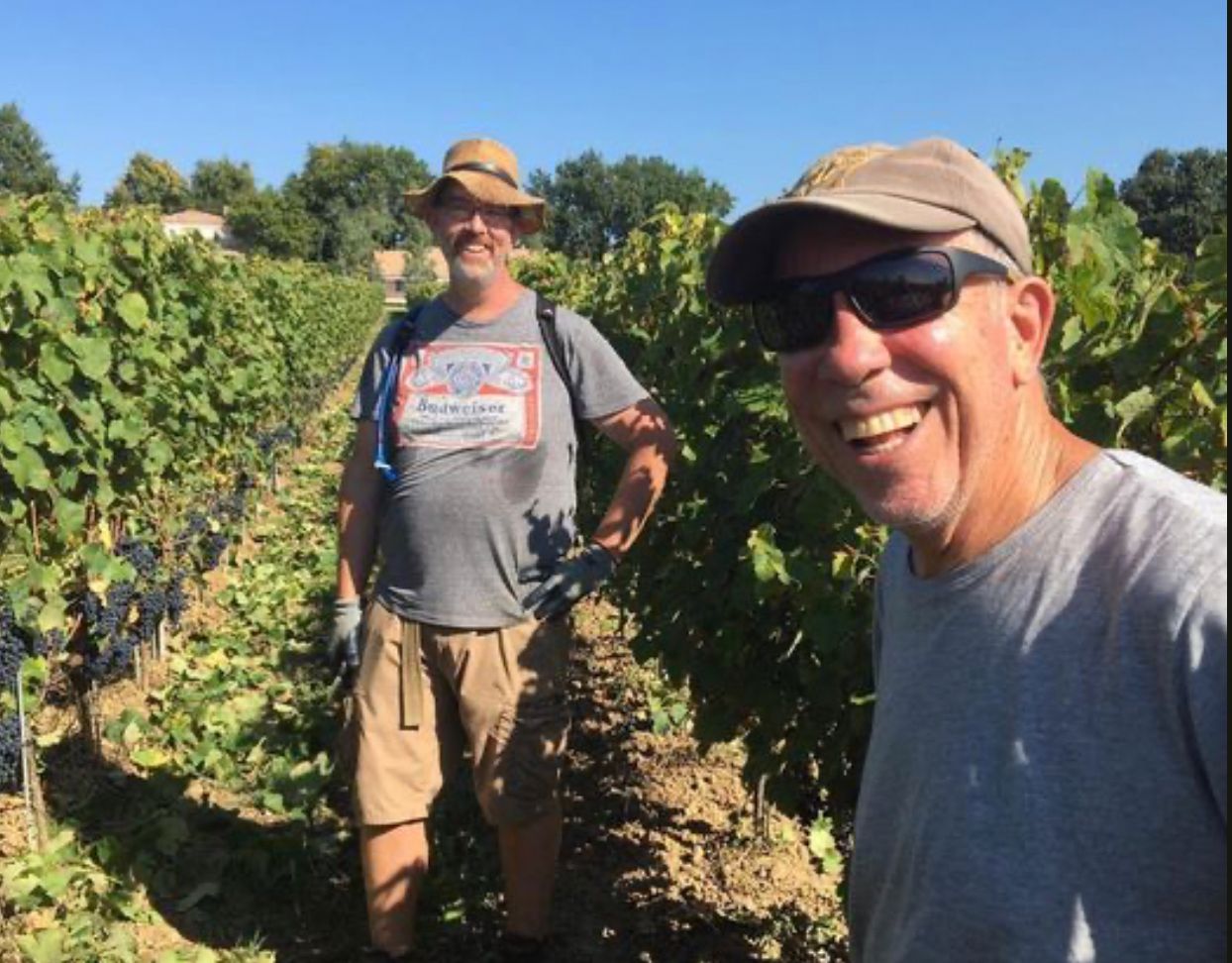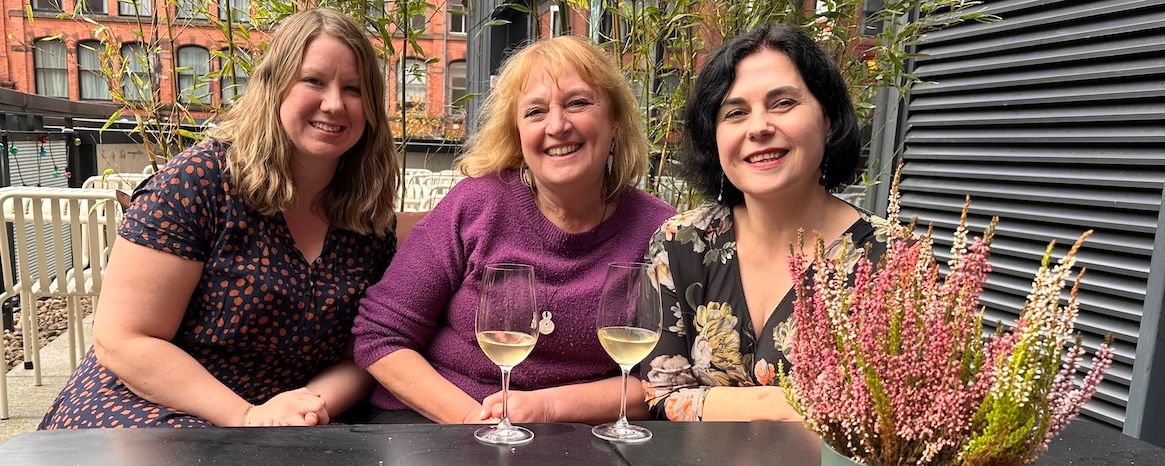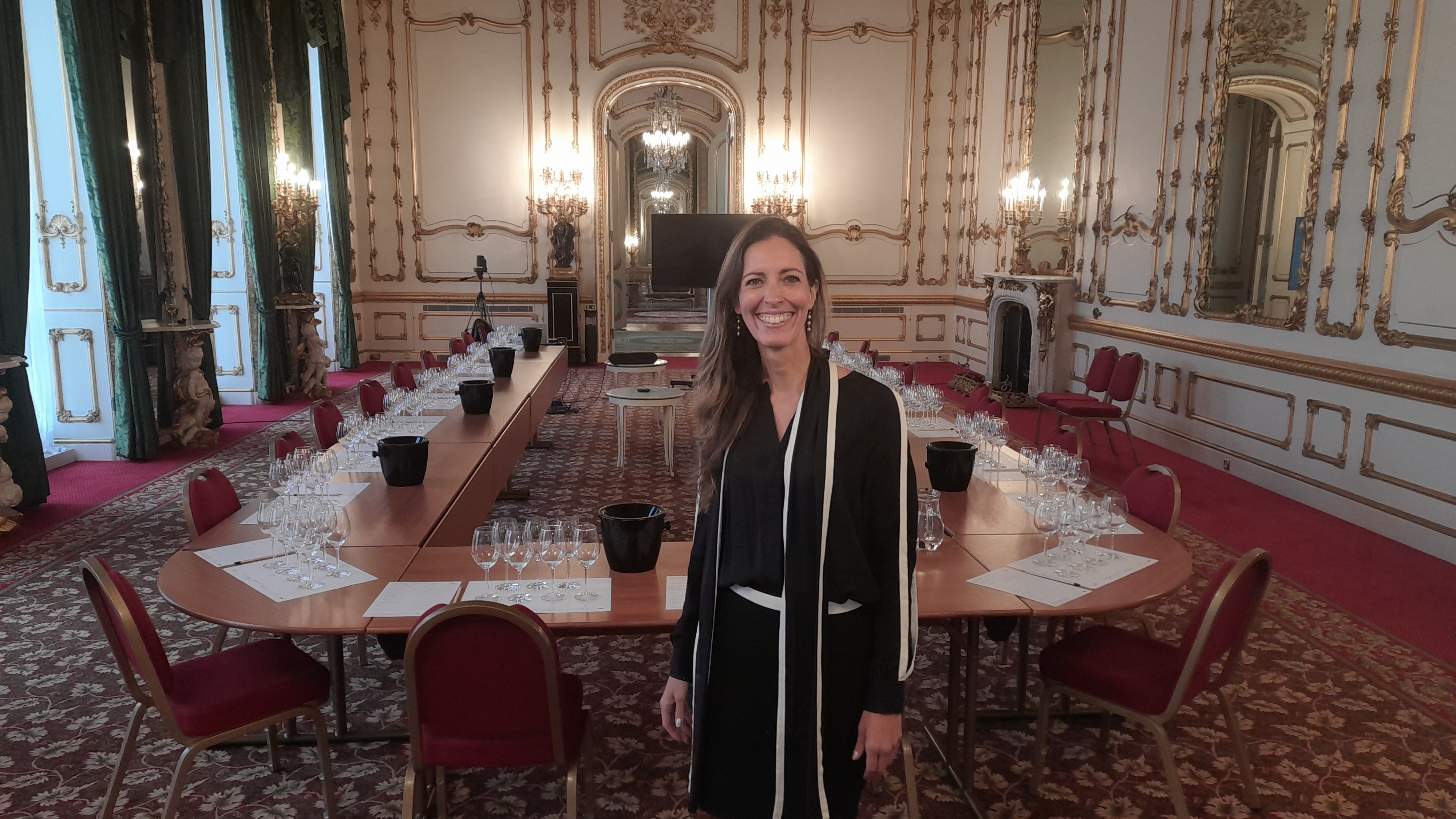Modern Bordeaux winemaking is all about making wines that are potentially in tune with what an increasing number of trade buyers and consumers are looking to enjoy. Find out more about what to expect at Bordeaux Day this month and the chance to taste ‘undiscovered’ cuvées at the special trade tastings in Manchester and London here.
Tell us about yourself, how you got into wine and why you wanted to be a winemaker, as you started your career in other sectors?
I was raised in Western Australia and attained a degree in commerce and eventually an MBA. My career began in tax accounting moving through different positions in operations, sales, marketing to general management. My wife Marion and I came together in 1981 and we lived on seven acres of land with all sorts of livestock and horticultural activities. Marion trained in horticulture and I was the labourer after work and on weekends. My parents also had a property in Margaret River, an emerging wine region at the time.
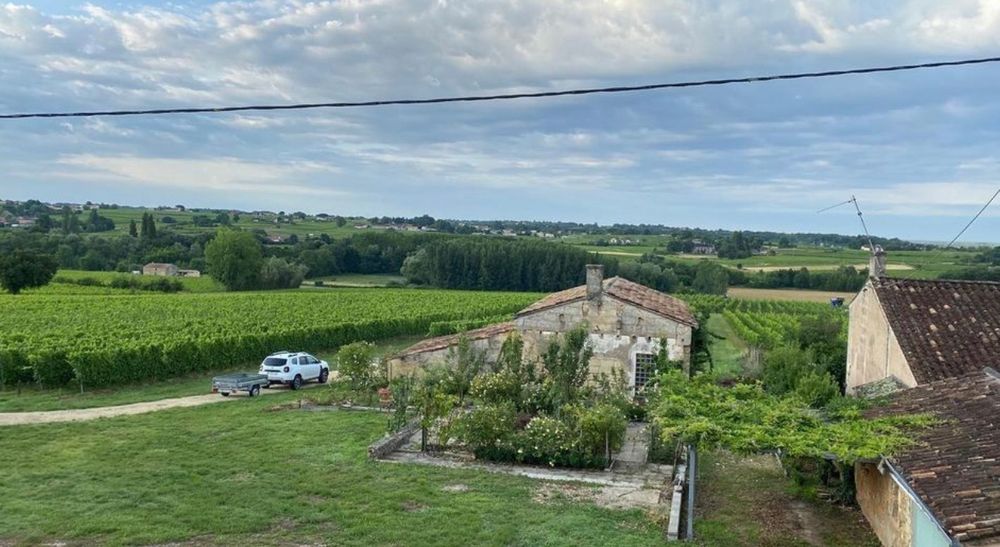
Château Maine Gazin has become Geoff Cook’s home in Bordeaux since 2015
We moved to Sydney for my work in 2003 but we craved the rural way of life, so in 2015, after a search through France the previous year, we purchased Château Maine Gazin. Being more hands-on in the vineyard and how to make wine has been quite a steep learning curve, but as you learn in management, you just have to surround yourself with talent.
What was it about wine that most appealed?
I received an early appreciation of wine through my father’s keen interest. Wine sophistication has come a long way in Australia since the 1970s and I followed into understanding varietal and regional differences and the passion amongst smaller wineries was infectious, so the vertical integration model of vineyard, winery and cellar door was appealing.
Marion and I had not been to Bordeaux but we stayed there after our search for a property through southern France. Bordeaux is a magnificent city – and by far our favourite city in France – surrounded by well-presented vineyards and everything about the region felt right. After a few days in Bordeaux, we began our property search on the right bank.
Coming from Australia how and why did you want to get involved in a wine business in Bordeaux and winemaking in France?
Margaret River is the region in Australia closest to Bordeaux wine styles, the first major input into the ‘why’. Through the mid 1990s I worked for a company based in the UK and where French wine was far more available, and I remember seeing articles in the Financial Times like ‘rent a row of Champagne vines and receive the income in bottles’ which manifested as another input. I also spent some time in France, coincidentally when France was playing Wales in rugby, and saw what a beautiful country it was, particularly the vineyards of Bordeaux with such fertile land.
What was it about Château Maine Gazin that most appealed to you?
(You can watch the story behind Château Maine Gazin here)
Marion and I spent weeks in 2014 looking for properties in the South East of France, but she had also identified some properties in Bordeaux. Château Maine Gazin was a real stretch for us but an absolute stand-out property, sloping north-south facing land flanked by rolling hills of green (in the summer) and overlooking the Gironde and towards Margaux. The history of the area is stunning – the estate is much older than the château and surrounding buildings, with the Romans producing wine in the first century – open vats, clay pots and amphorae were the thing back then.
Tell us about the winery and what its point of differences are?
When compared to Australia the difference is certainly history and tradition, but also the tightly held regulation on vineyard management and winemaking. The Maison at Château Maine Gazin was built in the 1850’s with half the building accommodation and the other the winery, and it was conventional to have a Château label at this time. In our winery, the vats are concrete (and were originally outside, with the roof being a later addition), and the winery walls are lime washed. Stainless steel tanks are more the norm now in wineries and we have added a temperature control system to the vats which introduced stainless steel to our winery.
On the regulation side of winemaking, the French appellations are specific with blending, on varieties and relative percentages ranges. Quality checks at the bottling stage and visits from the customs (Douane) are something to get used to in France, and through our conversion to organic wine making, we have added another layer of complexity which requires stringent traceability of the process and additives, which are audited each year.
What types of wine do you make and what are the production levels?
We are focused on red wine now after trialing rosé for two years. The vineyard is planted to Merlot, Petit Verdot and Cabernet Franc on 7.2 hectares, producing about 35,000 litres or 48,000 bottles. We have two Côtes de Bordeaux blends and a 100% Petit Verdot (Bordeaux Supérieur) in the range.
What changes have you or are you making in viticulture and the cellar, and why?

Geoff Cook has introduced a number of changes to the vineyards including trellising and planting density to maximise the impact of the sun on the vines
Our first vintage was in 2018 and this caused a major re-think on the winery. I mentioned earlier about the installation of temperature control system – many of the vats following this vintage needed refurbishment and we changed the fittings to stainless steel.
The vineyard was substantially changed too, with trellising raised higher, planting density to 6,000 vines to the hectare and row widths of 2 meters. This was to be better for tractor work and to gain the full effect of the sun on the vines. Irrigation is not permitted in Bordeaux so management of organic matter into the soil is a real need and in 2019 we trialed farming organically and officially began conversion following that harvest. We aim to achieve full Bio certification in 2023.
What are your main markets and are they changing?
The only market outside France that we have distribution is Australia. The timing of our entry into Australia was during the pandemic, so reaching out to buyers was difficult. Australia is very much a net exporter of wine with perhaps 75% of production volume sent overseas, and within Australia, the market is concentrated on both the supply and the demand sides. There is opportunity in the on-premise space and online in Australia too, which is where we are trying to be assertive.
Looking ahead, the UK is a very key market for me to enter, as is the US. These are sophisticated markets, well educated in good French wine, however, extremely difficult to enter as highly competitive with structured distribution.
How was the 2021 harvest in terms of quality, value and potential to sell?
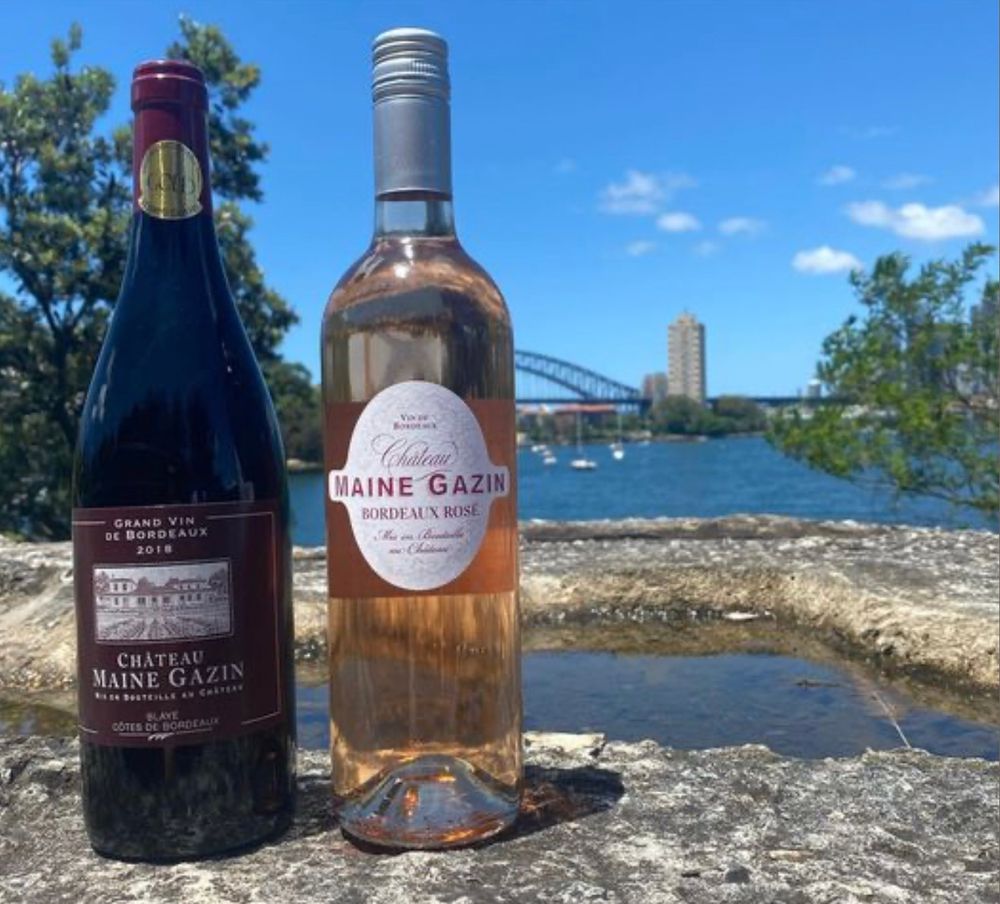
Proof is in the bottle: Château Maine Gazin’s wine range will be available to taste at the Bordeaux Day tastings on July 11 in Manchester and July 13 in London
2021 was challenging in the vineyard, particularly for the organic vignerons. The summer was cool and wet and therefore it was difficult to achieve full ripening and intensity. Harvesting took place later in the year and fortunately we had a few good windows into October to obtain ripening at Maine Gazin. We did a lot manual leaf-thinning in the Petit Verdot to maximise sun exposure and this was effective. Yields are down for the year but I don’t know how that will affect general pricing – it may even offer an opportunity for our wine because it is maturing nicely.
What are you doing to be involved in Bordeaux Day 2022?
This will be my first occasion to participate at such an event and we are excited to be taking part. I am so hoping to engage with some potential clients and distributors for on premise opportunities and also discuss availability in good off-premise stores.
What wines, ranges and focus are you having for Bordeaux Day 2022?
We will be presenting our Rouge Prestige 2019, however the 2018 Rouge is also available from the chai. Our Petit Verdot 2021 is currently in barrels and I only have less than a pallet of the 2018 vintage – it is a variety that needs to be taken to full ripening to stand up for single label bottling!
Why do you want to be involved in Bordeaux Day 2022 and what do you hope it can achieve?
I want to help boost our exposure and meet key decision makers for distribution. It is difficult to displace another wine on the shelf so the wine must be good, but it is clear that the supplier-purchaser relationship is even more important. We are a tiny business without a sales team and so working to achieving a few tight relationships is my approach.
Bordeaux Day

Discover the unexpected at Bordeaux Day – with just under two weeks to go until Bordeaux arrives in Manchester and London, it’s not too late to register!
These must-attend tastings will give you a unique opportunity to delve into modern Bordeaux: from unexpected wines to innovative winemakers and winemaking techniques, you can discover what today’s Bordeaux is all about. Register now:
Bordeaux Day Manchester – Monday 11th July at Oglesby Atrium, Stoller Hall, Hunts Bank M3 1DA
Bordeaux Day London – Wednesday 13th July at Arlettie, 13-14 Margaret Street W1W 8RN
